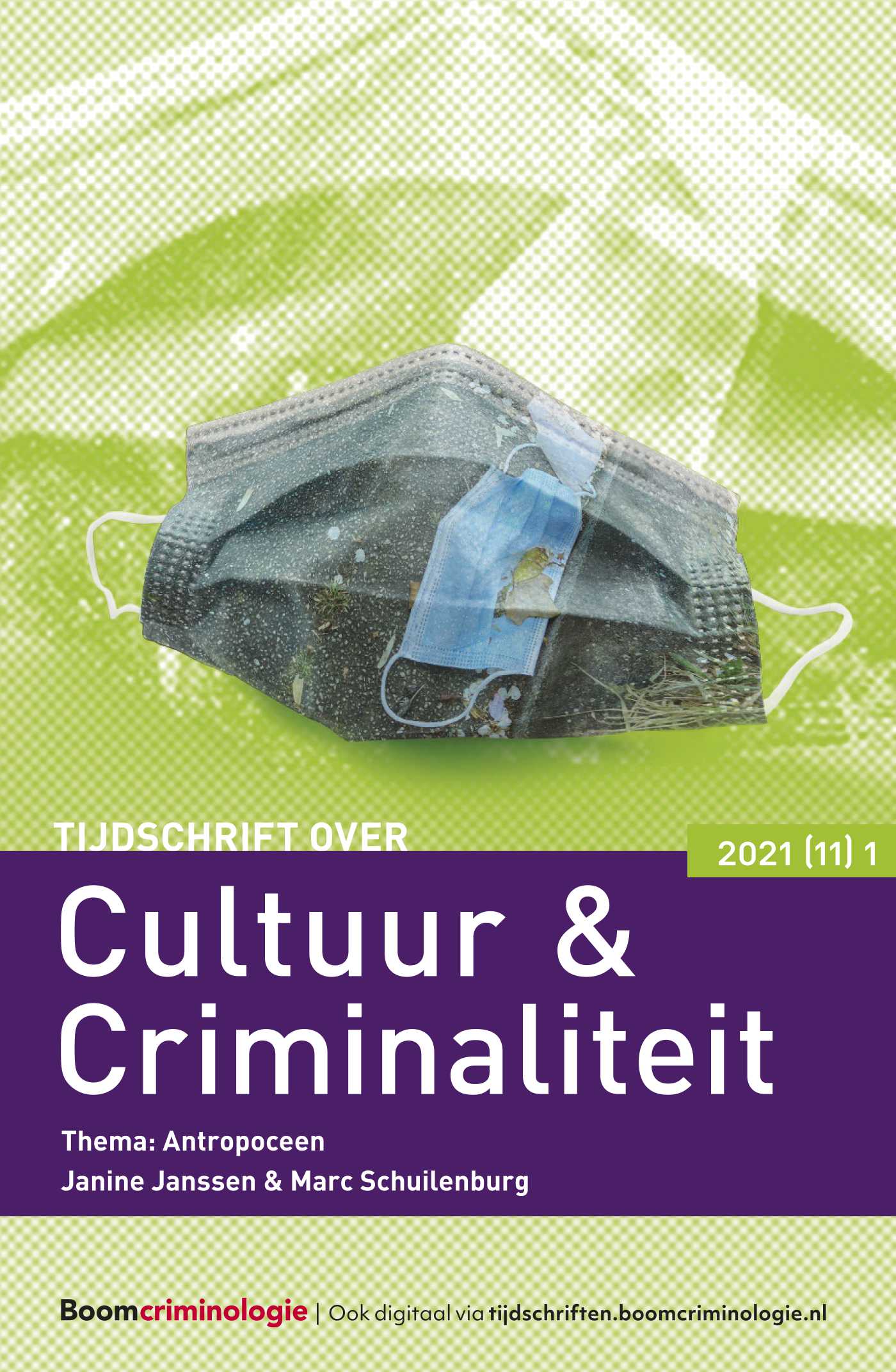|
The article examines the public debate about New Year’s Eve in Cologne in 2015. Theoretical starting point is the idea that public debates are forms of social communication in which reality is produced and social events become meaningful. On the basis of a framing analysis, it is investigated what significance New Year’s Eve in Cologne has as a medial event for society. The question here is how the event is described and explained, how it is mentioned and interpreted, what significance it collectively receives and how these insights can be theoretically interpreted. The analysis shows that different frames were possible, such as the problematization of the work of the police. Instead, the discourse focused on the sexual behaviour of refugees and securitization and sexualisation of migration takes place. |


Tijdschrift over Cultuur & Criminaliteit
Meer op het gebied van Criminologie en veiligheid
Over dit tijdschriftMeld u zich hier aan voor de attendering op dit tijdschrift zodat u direct een mail ontvangt als er een nieuw digitaal nummer is verschenen en u de artikelen online kunt lezen.
| Redactioneel |
Varia |
| Auteurs | dr. Ilse van Liempt en prof. dr. Richard Staring |
| Auteursinformatie |
| Artikel |
|
| Trefwoorden | Refugees, Gender debate, Sexual violence, Framing analysis |
| Auteurs | Dr. Martina Althoff |
| SamenvattingAuteursinformatie |
| Artikel |
#HOUHETSTRAAT: straatcultuur op social media? |
| Trefwoorden | street culture, Identity, social media, Performance |
| Auteurs | Dr. Robby Roks en Jeroen van den Broek MSc |
| SamenvattingAuteursinformatie |
|
Research on street culture in the Netherlands constitutes an area of relative paucity. Moreover, even less is known about the virtualisation of street culture. In this article, we draw on the social media accounts of a network of delinquent youngsters from Spangen, a neighbourhood in the Dutch city of Rotterdam. Analyzing tweets and images on social media, we found Goffmans (1959) notion of the ‘front’ in three main themes: the importance of the negative image of the locality, the communication of criminality, and emphasizing an oppositional relationship with the police. We argue that these results illustrate the performance of a street identity on social media. |
| Artikel |
Selectieve ‘culturalisering’ in de praktijk van de jeugdbescherming in België |
| Trefwoorden | youth justice, Roma, Caucasian migrants, refugees, selectivity, deviance |
| Auteurs | dr. Olga Petintseva |
| SamenvattingAuteursinformatie |
|
This paper focuses on the practice of youth justice (termed ‘youth protection’ in Belgium) in which professional actors ascribe deviant behaviour of youngsters to different cultural and migration backgrounds. Intra-European Roma migrants and refugees from the Northern Caucasus in Belgium are chosen as case studies. Discourse analysis of 55 youth court files and 41 expert interviews with professional actors show that deviant behaviour of these young people is explained in different manners. Two discourses are identified: ‘criminal vagabonds’ and ‘war torn children’. These discourses and their effects in practice differ tremendously for both groups. The broader discussion this article touches upon is the selective inclusion and exclusion in the institutions of formal social control, through social practices of culturalisation. |
| Diversen |
Lokale oplossingen voor problemen in asielopvang: de ‘vluchtelingencrisis’ als window of opportunity |
| Trefwoorden | asylum reception, local turn, Plan Einstein, experimental governance |
| Auteurs | dr. Karin Geuijen, dr. Rianne Dekker en dr. Caroline Oliver |
| SamenvattingAuteursinformatie |
|
During the recent ‘refugee crisis’, governments have been confronted with various problems concerning asylum reception. In several locations in the Netherlands, as well as elsewhere in Europe and beyond, new local forms of experimenting around the issue of asylum reception have begun. One example is Utrecht’s ‘Plan Einstein’. In Overvecht, a district of the city, an office building has been converted into an asylum shelter, where 400 asylum seekers live together with 38 non-refugee youngsters from Utrecht. The Centre runs courses and activities, offered to both asylum seekers (including those who do not yet have a residence status) and local residents. Employing the concepts of ‘multilevel governance’ and ‘experimental governance’, this article indicates why this initiative was able to be realized at this location and at this time. |
| Diversen |
|
| Trefwoorden | etnographic research, Violence, Manchester school, going native |
| Auteurs | prof. dr. Dina Siegel |
| SamenvattingAuteursinformatie |
|
This is an interview with one of the most important social anthropologists of the 20th century – prof. Emanuel Marx. |
| Diversen |
This is my border this is my place |
| Diversen |
Externe beoordelaars 2017 |

